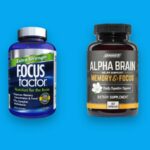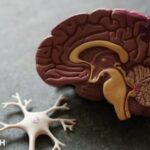Table of Contents
DHEA: What You Need to Know
Our organization takes great pride in serving as a trustworthy purveyor of information pertaining to health and wellness. In light of the fact that the internet has become a ubiquitous resource for individuals seeking answers to health-related inquiries, we are resolutely dedicated to disseminating precise and current knowledge pertaining to a diverse array of topics.
The present article shall delve into the intricacies of DHEA – a hormone that has garnered substantial notoriety in recent times. We shall explicate its nature, elucidate its functions, and evaluate the merits of considering its supplementation.
What is DHEA?
Dehydroepiandrosterone, commonly known as DHEA, is a hormone endogenously synthesized by the adrenal glands. As a precursor to both testosterone and estrogen, its chemical structure allows for its conversion into either hormone in accordance with the body’s requirements. Peak levels of DHEA are typically observed during an individual’s twenties, with a gradual decline in production occurring throughout the aging process.
What Does DHEA Do?
DHEA plays a role in various bodily functions, including the immune system, brain function, and bone density. Some people take DHEA supplements to help with depression, osteoporosis, and adrenal insufficiency. Others take it to boost athletic performance or to improve their sex drive. However, the evidence for these uses could be more extensive. More research is needed to determine whether DHEA is effective for these purposes.
Should You Take DHEA?
The multifaceted contributions of DHEA extend to a diverse spectrum of physiological functions, such as immunological regulation, cerebral processing, and skeletal density maintenance. It is not uncommon for individuals to utilize DHEA supplements as a potential aid for ailments such as depression, osteoporosis, and adrenal insufficiency. Additionally, DHEA has been used to purportedly enhance athletic performance and augment libido. Nevertheless, the scientific substantiation for these alleged benefits remains rather limited. Further exploration and investigation are necessary to ascertain the efficacy of DHEA supplementation for these purposes.
Conclusion
To summarize, DHEA is an endogenously produced hormone originating from the adrenal glands. Although DHEA supplements are utilized by some individuals for various purposes, the scientific evidence substantiating their efficacy is limited, and their safety needs to be more rigorously evaluated. Consequently, if you are contemplating DHEA supplementation, it is imperative to consult with a physician to determine its appropriateness for you. In conclusion, this article has provided a comprehensive understanding of DHEA’s characteristics and functions, emphasizing the importance of approaching supplement claims with caution and utilizing reliable sources such as our organization to obtain trustworthy information on health and wellness.








